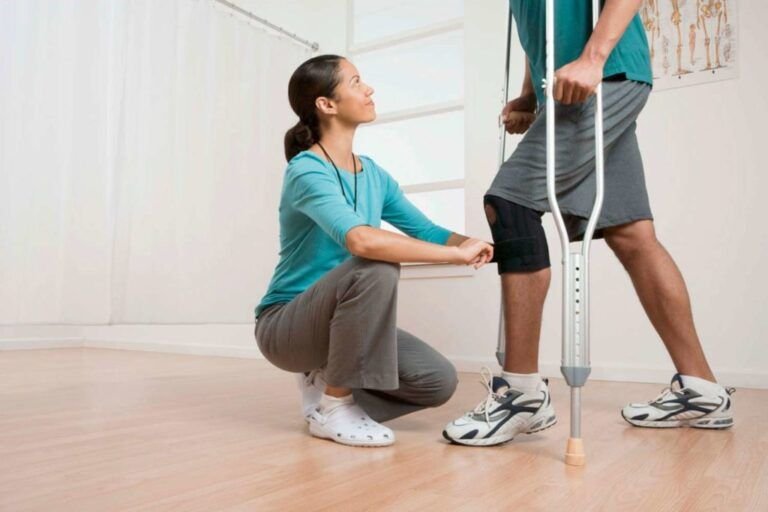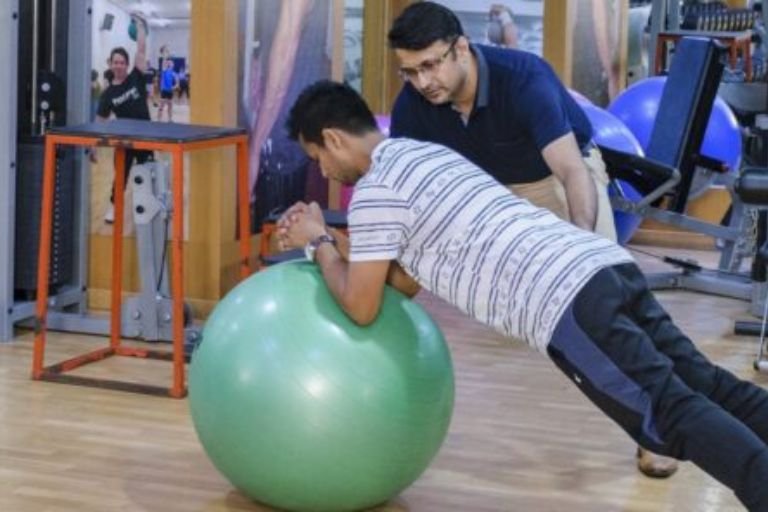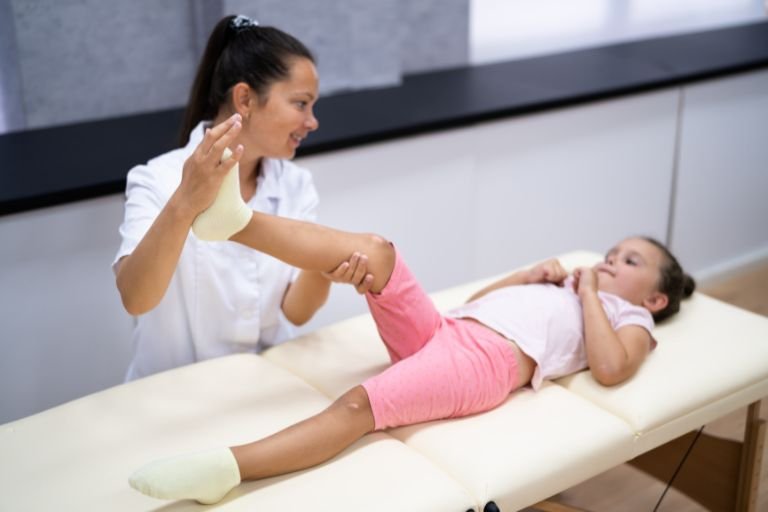- Fitwell Physiotherapy
Ergonomics Physiotherapy

Ergonomics physiotherapy, also known as ergonomic rehabilitation or ergonomic physiotherapy, is a specialized area of physiotherapy that focuses on optimizing the interaction between individuals and their work environment to prevent musculoskeletal injuries, improve comfort, and enhance productivity. It involves assessing ergonomic risk factors, designing ergonomic interventions, and providing education and training to promote healthy work habits and reduce the risk of work-related injuries.
Please submit your details below.
The goal of ergonomics physiotherapy is to create a work environment that supports optimal posture, movement patterns, and biomechanics, thereby reducing the incidence of musculoskeletal disorders (MSDs) such as repetitive strain injuries, back pain, neck pain, and carpal tunnel syndrome. Ergonomic physiotherapists work collaboratively with individuals, employers, and occupational health and safety professionals to implement ergonomic solutions that address the unique needs and challenges of specific work settings.
Key Components of Ergonomics Physiotherapy:
- Ergonomic Assessment: Ergonomic physiotherapists conduct comprehensive assessments of the workplace environment, including workstations, tools, equipment, and work tasks, to identify ergonomic risk factors and potential hazards that may contribute to musculoskeletal injuries.
- Postural Analysis: Postural analysis involves observing and evaluating an individual’s posture and body mechanics during work activities to identify ergonomic issues, such as awkward postures, excessive reaching or bending, and prolonged static positions, that may increase the risk of injury.
- Workstation Evaluation: Workstation evaluation involves assessing the layout, design, and configuration of computer workstations, office furniture, and equipment to ensure proper ergonomic alignment, adjustability, and support for optimal comfort and productivity.
- Movement Analysis: Movement analysis entails examining how individuals perform work tasks and activities, including lifting, carrying, reaching, typing, and using tools, to identify inefficient movement patterns, repetitive motions, and overexertion that may contribute to musculoskeletal strain.
- Manual Handling Training: Manual handling training provides individuals with techniques and strategies for safely lifting, carrying, and moving objects to reduce the risk of back injuries and strains. Ergonomic physiotherapists educate workers on proper body mechanics, lifting techniques, and use of assistive devices to minimize the risk of injury during manual tasks.
- Workstation Ergonomic Adjustments: Ergonomic physiotherapists recommend adjustments and modifications to workstations, chairs, desks, keyboards, mice, monitors, and other equipment to optimize ergonomic fit, alignment, and comfort for individual users.
- Stretching and Exercise Programs: Ergonomic physiotherapists develop stretching and exercise programs tailored to the specific needs and requirements of individuals in the workplace to improve flexibility, strength, and posture, and reduce the risk of muscular fatigue and discomfort.
- Ergonomic Education and Training: Ergonomic physiotherapists provide education and training to individuals, supervisors, and management teams on ergonomic principles, injury prevention strategies, and healthy work habits to promote awareness and empower employees to take an active role in their own health and safety.
Benefits of Ergonomics Physiotherapy:
- Injury Prevention: Ergonomics physiotherapy helps prevent work-related musculoskeletal injuries by identifying and addressing ergonomic risk factors that contribute to strain, fatigue, and discomfort in the workplace.
- Improved Comfort and Productivity: By optimizing workstation ergonomics, promoting proper posture and movement patterns, and providing ergonomic education and training, ergonomic physiotherapy enhances comfort, reduces fatigue, and increases productivity among workers.
- Enhanced Work Environment: Ergonomic physiotherapy creates a safer, healthier, and more supportive work environment by implementing ergonomic solutions that minimize physical stress and strain, improve job satisfaction, and reduce absenteeism and turnover.
- Cost Savings: Investing in ergonomics physiotherapy can lead to significant cost savings for employers by reducing the incidence of work-related injuries, workers’ compensation claims, and healthcare costs associated with musculoskeletal disorders.
- Empowerment and Engagement: Ergonomic physiotherapy empowers individuals to take control of their health and well-being by providing them with the knowledge, skills, and resources to maintain proper ergonomic practices, prevent injuries, and optimize their work performance.
Why Choose Ergonomics Physiotherapy:
- Expertise and Specialization: Ergonomic physiotherapists have specialized training and expertise in assessing ergonomic risk factors, designing ergonomic interventions, and promoting healthy work habits to prevent work-related injuries and promote well-being in the workplace.
- Individualized Approach: Ergonomics physiotherapy takes a personalized approach to addressing the unique needs and challenges of specific work environments, job tasks, and individual users, ensuring tailored ergonomic solutions that meet the diverse needs of workers.
- Collaborative Approach: Ergonomic physiotherapists work collaboratively with individuals, employers, occupational health and safety professionals, and other stakeholders to implement comprehensive ergonomic programs that promote a culture of safety, health, and well-being in the workplace.
- Evidence-Based Practice: Ergonomics physiotherapy interventions are based on the latest research evidence and best practice guidelines in ergonomics, ensuring the most effective and up-to-date strategies for preventing work-related injuries and promoting ergonomic excellence in the workplace.
Corporate Talk Sessions
Frequently Asked Questions
How Fitwell Physiotherapy Can Help?
Dr. Richa’s Fitwell physiotherapy has an extensive team of physiotherapists all within their own specialist areas of physiotherapy. Whatever your condition, we guarantee that we will have the best physiotherapist for you. We assess, diagnose, plan, cure and care for you.
Fitwell Physiotherapy Clinic, Pune provides you best physiotherapy treatment in Kharadi, pune. We also serve Chandan Nagar, Vadgaon Sheri, Keshav Nagar, Wagholi & nearby Areas in Pune. We are experts in treating Neck Pain, Hand Pain, Back Pain, Lower Back Pain, Knee Pain, Stiff Neck, Sciatica, Arthritis, Stroke Paralysis & Post Surgical Rehab.
We provide Specialized physiotherapy treatments in Sports Injuries, Pre and post Surgery, Neurologic, Pediatric, Chronic Pain/Fatigue, Rheumatology, Women’s Health, Men’s Health, Ergonomics, Vestibular, Amputees & all sort of Pain treatment and lifestyle conditions.




























